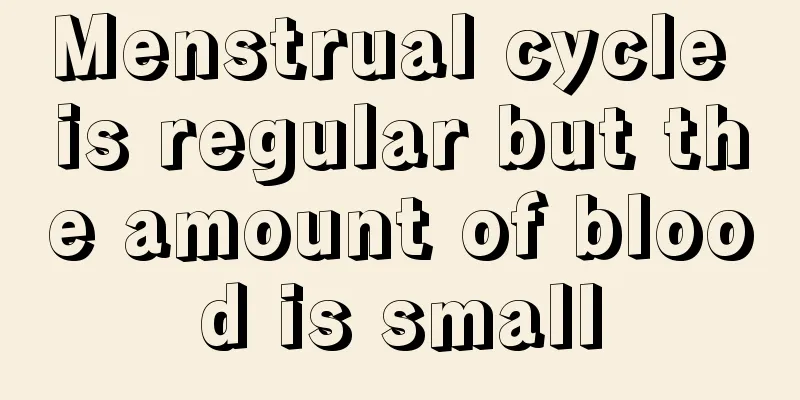Why does my stomach hurt after picking my belly button?

|
There are always some parts of the human body that seem to have no function. for example: appendix Pinky Belly button The belly button, a seemingly unnecessary organ, is located low in the belly and is already hiding itself very low-key. However, I still can't stop my little hands that like to pick my nose, pick my ears, and search everywhere. After picking, I habitually rub and smell them. However, as satisfying as it is to do it, there are times when the little bad guys fail. Redness, skin breakage and even stomach pain are also common. Why is this? The picture comes from the Internet Can you pick your belly button? Where does it come from and where does it go? Is the belly button really connected to our intestines, liver, and kidneys? The belly button is a dead end. The belly button is actually the scar left when the umbilical cord falls off after the fetus is born. When we are still in our mother's womb, we rely on the umbilical cord for eating, drinking, defecating and urinating. After the fetus is born, the umbilical cord's mission is completed and it will be ruthlessly cut by the doctor. The umbilical cord opening on the baby's body will gradually shrink and fall off, forming a belly button. Image courtesy of Novant Health The umbilical artery, umbilical vein and urachus inside the umbilical cord will mostly degenerate, become blocked or form ligaments and be hidden in the abdominal cavity. In short: your belly button is like a dead end. It leads nowhere and is not connected to your intestines. Is it better to have a protruding belly button or a concave belly button? The shape of the belly button has been a special aesthetic since ancient times. There is a folk saying: A shallow belly button is for tiles, and a deep belly button is for coins. What this means is that poor people are thin and rich people are fat, and the belly buttons of fat people will be deeper. It is said that in ancient times, midwives would be very careful when cutting the umbilical cord. Because after the umbilical cord falls off, if the navel is bulging, the midwife will receive much less red envelope money. Image from SOOGIF According to research statistics, about 90% of people have concave belly buttons, and 10% have convex belly buttons. But in fact, the shape of the belly button is mainly related to the healing process after the umbilical cord falls off naturally. After the umbilical cord is cut off, after a period of healing, the skin next to the belly button will slowly grow from both sides to the middle, and "flesh" will also grow quietly inside. These scar tissues will eventually fill the hole. Therefore, it is the growth rate of scar tissue that determines whether you have a deep concave belly button or a prominent convex belly button. In addition, if the intra-abdominal pressure is high during infancy, the belly button may also develop into a protruding belly button. The picture comes from Shenzhen Health Commission In short, every belly button has its own destined appearance, which has nothing to do with the skills or knife skills of the midwife. Of course, if you want to change your protruding belly button into a concave one, there is a solution: gain weight! The picture comes from the Internet But...gaining weight may be a road of no return!!! Why does the "mud" in the belly button smell? The "mud" in the belly button is mainly the secretion of the skin's natural metabolism. Including shed epithelial cells, naturally secreted oil, sweat, clothing fibers, and some external dust. Image from Science Insider As for why the "mud" in the belly button smells bad, there are probably three reasons: 1. The smell of dirty things When dead skin cells and skin oil accumulate in your belly button, they can form a "belly button stone" over time, which is similar to blackheads in the skin. The surface of these "belly button stones" will turn black due to oxidation, and if there are too many of them, you may need to use tweezers to remove them. The endless supply of "belly button stones" accumulates over time and it really has that flavor. Especially for middle-aged men, who have heavier body hair and sunken belly buttons, belly buttons are more likely to "hide dirt and filth" and "stink". Image source: BBC I have to sigh: When people reach middle age, they have no choice but to be greasy and dirty. 2. Odor caused by bacteria Studies have shown that there are approximately 2,368 types of bacteria in the belly button, and most people may carry 67 types, depending on their living environment and habits. Image from national geographic news Although most of these microorganisms are harmless, some bacteria (such as Bacillus) produce metabolites with pungent odors during their growth and reproduction, thus producing odors. 3. Odor caused by inflammation and infection If your belly button becomes itchy and red, it may be infected. At this time, the skin barrier is damaged, and bacteria can grow and multiply more unscrupulously. Image from Science Insider If you are infected with yeast, white metabolites may emerge from your belly button, which is a bit like cheese and has a very strong smell. Therefore, it is necessary to pay attention to the cleaning of the belly button, which is a sanitary blind spot. Should I pick my belly button or not? Although the functions of the umbilical cord have largely degenerated and there is no direct connection with the internal organs. But be careful: don't pick it randomly. 1. The visceral nerve reflexes still exist, and there is almost no subcutaneous fat behind the belly button, which is directly connected to the fascia and peritoneum. If you use too much force when picking, it may irritate your internal organs, causing discomfort in the digestive system, stomach pain or diarrhea. 2. A small part of the arteries in the umbilical cord continue to participate in the circulatory system, supplying blood to the bladder, ureters, etc. If you pick at your belly button too hard, you may irritate your bladder and make you want to pee. 3. There are many bacteria in the belly button, such as Staphylococcus aureus. Once the skin is scratched, it can easily cause inflammation and infection, which is not worth the risk. Image from Science Insider For daily cleaning, you can take a cotton swab and dip it in a proper amount of water or alcohol, and wipe it in circles inside the belly button; If there is a lot of dirt in the belly button, wipe it more times; Finally, remember to use a clean cotton swab to wipe the liquid in the belly button. It is best to be gentle when washing your belly button. If you accidentally injure your belly button, be sure to disinfect it in time. Although the belly button is not connected to the intestines, picking it too much can indeed cause stomach pain and discomfort. So after watching this, will you still pick your belly button? |
<<: Honey tastes a bit sour, is it bad? What does expired honey look like?
>>: Why is pasta put into the pot in cold water? How long should pasta be cooked?
Recommend
Can women get breast cancer during breastfeeding?
Breast cancer has become a major threat to women&...
Australia bans artificial stone, causing incurable diseases for 600 people
Recently, Australia announced at a conference tha...
Tips for preventing Helicobacter pylori infection
This is the 4198th article of Da Yi Xiao Hu Mr. C...
How to use sanitary napkins correctly
Many women have misunderstandings when using sani...
Can I eat kelp during confinement?
Many people know that kelp can improve immunity, ...
How many months of pregnancy can you abort the fetus
In the early stages of a woman's pregnancy, i...
If a pregnant woman eats oranges, will the fetus turn yellow?
Pregnancy is a special period for women. During t...
What to do with a woman who is too yin
In terms of home Feng Shui, insufficient Yang ene...
What to do if your eyes are red and swollen during breastfeeding
If swelling occurs in both eyes, the cause of the...
Can azalea be propagated with flower buds? What is the correct method for propagating azalea?
As people's quality of life improves, more an...
Symptoms and pictures of female tinea cruris
If you have tinea cruris, it will seriously affec...
What is the reason for dizziness and vomiting during menstruation?
Many women experience pain and discomfort during ...
What's wrong with the baby's neck? What should I do if the baby's neck is submerged?
The baby's neck is submerged, which is a comm...
When is the best time to eat pig's trotters for breast enhancement?
Pig's trotters are rich in collagen and prote...
Can pregnant women undergo root canal treatment?
Some pregnant women, because they did not take go...









